After almost five years of debate New Zealand’s Parliament has elected to ban software patents. The patent bill specifically states that a computer program is “not an invention”. This bill does not inherently exclude processes even if the process is expressed via a computer program, although this seems to be a small difference.
Should the US follow New Zealand’s lead? I personally do not believe we should. The US Government Accountability Office has been assessing the factors that affect patent infringement:
In addition, GAO's detailed analysis of a representative sample of 500 lawsuits from 2007 to 2011 shows that the number of overall defendants in patent infringement lawsuits increased by about 129 percent over this period. These data also show that companies that make products brought most of the lawsuits and that nonpracticing entities (NPE) brought about a fifth of all lawsuits. GAO's analysis of these data also found that lawsuits involving software-related patents accounted for about 89 percent of the increase in defendants over this period.
So contrary to what you hear in the news NPEs (trolls) have not been jamming up the entire system with claims, however, over the last 20 years there has been a dramatic increase in the overall number of software patents and subsequent litigation. The real problem arises due to an increase in software patents that are poorly constructed, and the US Patent and Trademark Office (PTO) does not appear to be equipped to recognize them.
GAO recommends that PTO consider examining trends in patent infringement litigation and consider linking this information to internal patent examination data to improve patent quality and examination.
The America Invents Act of 2011 was signed into law to help improve the patent system (the last change to the patent system was 60 years earlier). One of the most significant changes was the ability for the public to submit “prior art” examples while a patent application was under examination.
So the problem is not the number of patents being submitted or even the number of trolls but the quality of patents, and how the PTO can quickly identify and reject them in a timely fashion. Consequently there is a new Stack Exchange web site dedicated to this very principle called Ask Patents. A patent officer submits a question and an engineer responds with an example of prior art (or not as the case may be), the principle is as follows:
Ask Patents is a question and answer site for people interested in improving and participating in the patent system. It's built and run by you as part of the Stack Exchange network of Q&A sites. With your help, we're working together to find Prior Art on dangerous and overly broad US Patent Applications before they become issued Patents.
The time and money that everyone is dedicating to litigation could easily be reduced by eliminating the patent detritus before it becomes issued in the system and then gets evaluated in court by an unqualified judge. Simply put, software companies could dedicate engineers and not lawyers to help dramatically improve this patent system.

Comments are closed.